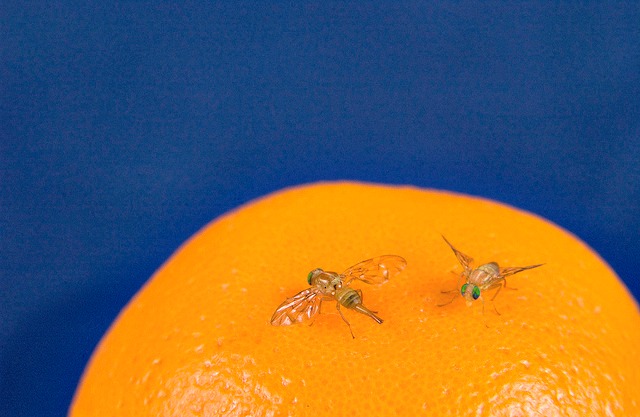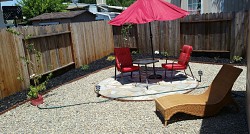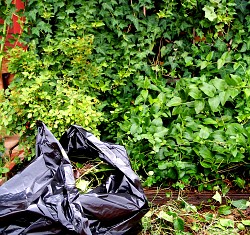Home Pest Control *Without* Chemicals
 Roaches, mosquitoes, pantry moths, rats, and mice all have their place in the grand scheme of things. That place should not be inside your house. But how do you keep out these unwelcome guests? Pesticides often contain chemicals which endanger the health of your household members. Besides, killing fuzzy, crawling, or flying pests is cruel and does little to eliminate the source of infestation. If you'd like to keep pests away without chemicals, some preventive maintenance is in order. Here are 7 tips for natural home pest control.
Roaches, mosquitoes, pantry moths, rats, and mice all have their place in the grand scheme of things. That place should not be inside your house. But how do you keep out these unwelcome guests? Pesticides often contain chemicals which endanger the health of your household members. Besides, killing fuzzy, crawling, or flying pests is cruel and does little to eliminate the source of infestation. If you'd like to keep pests away without chemicals, some preventive maintenance is in order. Here are 7 tips for natural home pest control.
1. Limit pests' access to your home. Mice are capable of squeezing through a gap as small as a dime in diameter, and insects can get in through even smaller spaces. The most basic step in home pest control is to promptly repair holes, cracks, rotten wood window frames, torn screens, and other openings. For a door that does not quite seal at the bottom, add weatherstripping or build up the threshold (FRINGE BENEFIT: You'll reduce drafts).
Use a chimney cap to bar access to your flue. Aluminum screens can be your best friend -- not only to protect windows and doors, but also to cover your HVAC air intake and exhaust vents without blocking circulation. In fact any place where there is an opening of one-quarter inch or more, for example around HVAC pipes and ductwork; your home's foundation; or any wires, conduits, or sewer lines, should be sealed with a material like cement or copper wool ... which cannot be chewed through by a determined rodent.
2. Close the pest restaurant. Keep your kitchen free of crumbs, food scraps, and dirty dishes. Use a heavy, lidded bin for garbage containing food, as well as another covered bin for compost. Bulk grains and similar foods are a pest magnet when they are simply left in the bags that they came in; to keep these foodstuffs free of infestation, recycle glass jars as storage containers. For the safest solution, store flour, rice, oats, and other staples in the freezer. This also prevents them turning rancid. Rinse recyclables that were used for food or drink with soapy water -- reused dishwater or shower runoff is fine for this purpose.
3. Shut down bug water fountains and breeding grounds. Stagnant water is a well-known bug breeding center. Get rid of any standing water in your yard; unclog gutters and roof drains; and frequently change water in pet dishes, flower vases, and the like. Fix dripping faucets to control pests such as roaches and ants -- which flourish in a moist environment -- and limit hazardous mold growth at the same time.
4. Don't let them hide anywhere in or around your home. Clear any clutter that might otherwise serve as a hideout for insect or mammal pests, both indoors (including bedrooms, closets, and pantries) and out (garage and other outbuildings). Check woodpiles and similar hiding places regularly.
5. Vacuum efficiently and often. A vacuum cleaner is an excellent tool for control of home pest species like fleas and bedbugs. Remove eggs and larvae using a vacuum equipped with a high efficiency air particulate (HEPA) filter.
6. Scare pesky critters right off your property. Chase away larger critters (squirrels, rats, raccoons, and so on) as soon as they venture near your home. Hang up a pest decoy that fools them into thinking that a predator -- like an owl, falcon, or coyote -- is on the prowl outside your door.
7. Hire a savvy home pest control pro. Find a reliable local contractor who is up to date on the latest methods of natural pest control.
Laura Firszt writes for networx.com.
Updated November 13, 2018.
Looking for a Pro? Call us (866) 441-6648

Pest control Average Costs
Exterminators Experiences

Landscaping Turns A Weed Patch Into A Great Little Zen Garden

New Low-Maintenance Landscaping To Update Our Yard



